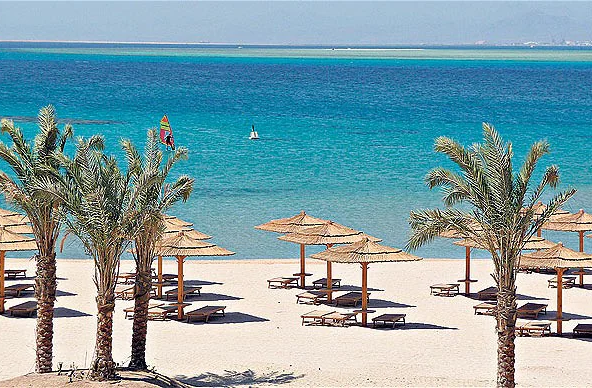The Real Estate Market in Egypt: A Comprehensive Guide
Egypt’s real estate market has undergone significant growth over the past decade, attracting both local and international investors. Whether you’re interested in purchasing property for personal use, investment, or commercial purposes, Egypt offers a wide range of opportunities in different regions. From the bustling capital of Cairo to the tranquil coastal resorts along the Red Sea and Mediterranean, the country’s diverse real estate options cater to various needs and budgets.
1. Overview of Egypt’s Real Estate Market
Egypt’s real estate market has witnessed steady growth, fueled by a rising population, urbanization, and an expanding middle class. Major cities such as Cairo, Alexandria, and Giza continue to be hotspots for residential, commercial, and industrial properties. Moreover, coastal areas like the Red Sea and North Coast (Al Sahel) are increasingly popular among investors due to the surge in tourism and the development of luxury resorts.
Over the past several years, Egypt’s government has also taken active steps to modernize infrastructure and encourage investment in real estate through initiatives such as “New Cities” (e.g., New Cairo, New Alamein). These efforts have enhanced Egypt’s attractiveness as a destination for both local and foreign property investors.
2. Hotspots for Real Estate Investment in Egypt
Cairo and Giza: The capital city remains a top choice for real estate investors due to its large population, economic opportunities, and business activities. Areas like New Cairo, 6th of October City, and Sheikh Zayed City are popular for residential projects. Meanwhile, Giza is home to some of Egypt’s most iconic properties, including those near the Pyramids and the expanding commercial districts.
Alexandria: As Egypt’s second-largest city, Alexandria offers a mix of residential and commercial properties with its strategic location on the Mediterranean Sea. It attracts both locals and expatriates looking for coastal living with easy access to urban amenities.
Red Sea and Coastal Cities: The Red Sea, including Sharm El Sheikh, Hurghada, and El Gouna, is renowned for its luxury real estate options, including villas, resorts, and beachfront properties. The Egyptian government is heavily investing in infrastructure projects in these areas to support tourism and long-term property investment.
North Coast (Al Sahel): The North Coast is one of the fastest-growing areas for vacation homes and summer residences. With new resorts and luxury developments springing up, it’s an attractive location for both short-term holidaymakers and long-term property owners.
3. Types of Properties in Egypt
Egypt’s real estate market offers a wide range of property types, from affordable apartments to luxurious villas and sprawling commercial properties. Here are some of the most common types:
Residential Properties: Apartments, townhouses, and villas are the primary residential property types. Newer developments often feature modern facilities such as gyms, swimming pools, and gardens, catering to middle-class and upper-class buyers.
Commercial Properties: Office buildings, retail spaces, and mixed-use developments are in high demand in Egypt’s cities, especially in Cairo and Alexandria. Commercial real estate is thriving thanks to a growing business and retail sector.
Tourism and Resort Properties: Coastal properties along the Red Sea and Mediterranean are popular for vacation homes, resorts, and rental investments. Areas like Hurghada and Sharm El Sheikh offer great opportunities for short-term rental properties due to their high tourist traffic.
Land for Development: With Egypt’s ongoing urban expansion, there is strong demand for land in developing areas. Investors often purchase plots in growing cities or resorts to build new residential or commercial developments.
4. Factors Influencing the Real Estate Market in Egypt
Government Initiatives: The Egyptian government’s focus on infrastructure projects, such as new roads, public transport systems, and new cities, has greatly influenced real estate development. For instance, projects like the New Administrative Capital aim to decongest Cairo and attract investment in new areas.
Economic Conditions: Egypt’s economy has faced challenges in recent years, such as inflation and currency fluctuations, but real estate remains a strong asset class. Property values tend to increase in high-demand areas, even during economic downturns.
Tourism and Expatriates: Tourism is a major driver of real estate demand in coastal areas like Sharm El Sheikh and Hurghada. The growing expat community in Egypt, particularly in Cairo and Alexandria, also boosts demand for both rental properties and long-term investments.
Foreign Investment: The Egyptian government has introduced various incentives to attract foreign investors, such as offering residency permits for property buyers in specific areas. International buyers, particularly from the Gulf region and Europe, are investing heavily in Egypt’s luxury real estate market.
5. Financing and Purchasing Property in Egypt
For locals and expatriates alike, buying property in Egypt can be straightforward, but it’s important to understand the legal and financial processes involved.
Mortgage Options: Although mortgage financing is available in Egypt, it is generally limited compared to other countries. Most Egyptians prefer to buy property with cash, but expatriates can often secure financing through local banks if they meet the necessary criteria.
Legal Considerations: Foreign buyers can purchase property in Egypt, but there are regulations in place to protect the local market. For instance, non-Egyptian nationals can buy property in certain areas, such as New Cairo and the Red Sea resorts, but are typically restricted from buying land in rural or agricultural zones.
Taxes and Fees: Property transactions in Egypt are subject to registration fees and taxes, which can range from 3% to 10% of the property value. It’s also important to factor in ongoing maintenance fees, especially for properties within gated communities or resorts.
6. Trends and Future Outlook for Egypt’s Real Estate Market
Looking ahead, the real estate market in Egypt is expected to continue growing, driven by urban development, tourism, and foreign investment. The government’s focus on new city development and improving infrastructure will likely open up new areas for both residential and commercial real estate projects.
Additionally, with Egypt’s expanding middle class, there is growing demand for affordable housing. Developers are increasingly catering to this segment with affordable residential communities and housing projects designed to meet the needs of first-time buyers.
As Egypt becomes a more prominent hub for tourism, trade, and business, the demand for real estate is expected to increase, making it an attractive market for investors in the long term.
Conclusion
Egypt’s real estate market is diverse and dynamic, offering a wide range of opportunities for both local and foreign investors. Whether you’re looking for a home in the city, a vacation property on the coast, or a commercial investment, Egypt has something to suit every need. With the ongoing development of new cities and improvements in infrastructure, the future of real estate in Egypt looks promising, making it an exciting time to invest in the country’s property market.




